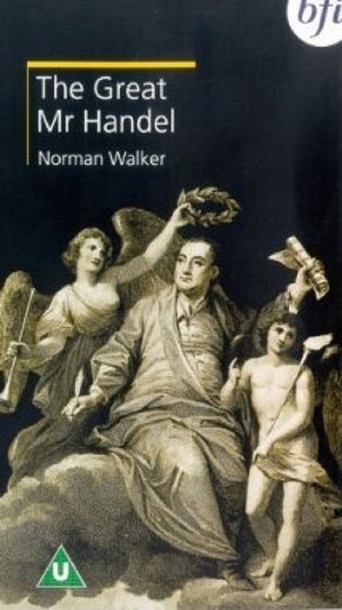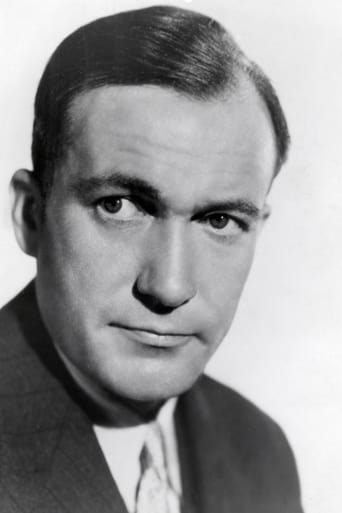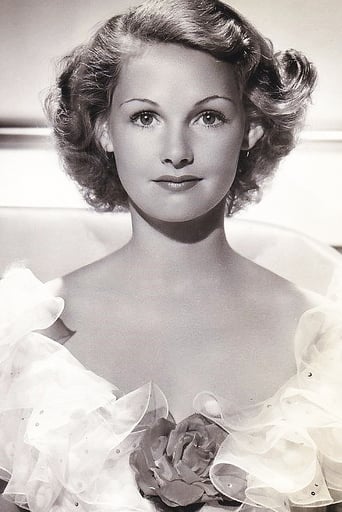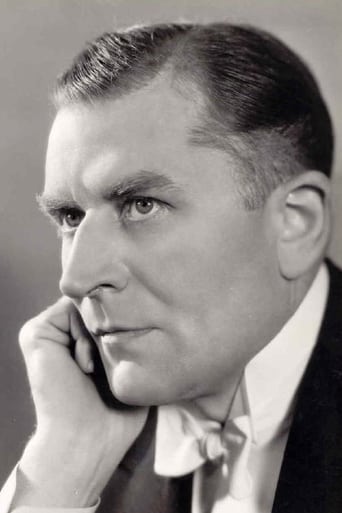

The Great Mr Handel (1942)
This classic film reveals how the great composer Georg Friedrich Handel rose above the personal anguish and difficulties in his life to create the sublime musical composition, The Messiah.
Watch Trailer
Cast
Reviews
Good movie but grossly overrated
The story-telling is good with flashbacks.The film is both funny and heartbreaking. You smile in a scene and get a soulcrushing revelation in the next.
It's a feast for the eyes. But what really makes this dramedy work is the acting.
The acting is good, and the firecracker script has some excellent ideas.
One thing Winston Churchill and Adolph Hitler had in common was their belief in the power of film as a medium. Hitler had Joe Goebbels cranking out propaganda films for the morale and Churchill gave generously to the British film industry for certain films he deemed important. One of them was Laurence Olivier's Henry V and another was J. Arthur Rank's production of The Great Mr. Handel.For those who don't remember their history the United Kingdom at the point our story begins was ruled by George I of Hanover who spoke no English, but was the closest unquestioning Protestant heir. George was Duke of Hanover and held a nice chunk of German real estate in the middle of that then geographical expression called Germany. A lot of Germans were able to emigrate to Great Britain to seek their fortune and composer George Fridrich Handel was one of them.George I dies and George II whose native tongue was still German was now king. But his lack of English and boorish conduct in general like his father didn't near and endear him to many. His son however Frederick the Prince Of Wales had his own following.Most of this film is taken up with a rather stupid quarrel that Handel has with the prince and Frederick's attempts to ruin him artistically. Back then artists of all kinds depended on the patrimony of the wealthy and getting out of favor with royalty was not something the wealthy wanted. And Handel was an irascible stubborn guy who was not about to kowtow to anyone even for his art.Wilfrid Lawson plays Handel and Max Kirby the Prince of Wales. Elizabeth Allan is the actress/singer Mrs. Cibber who sang much of Handel's work. It's interesting to compare Lawson's Handel with another film about Handel where Trevor Howard plays the German expatriate composer from his deathbed as he reminisces about some focal points of his life. I think Howard caught the man a lot better, his raspy voices was made to play curmudgeons.Still classical music fans will like this film.
This is not a great film but it is an interesting one for what it attempts to show. Movies that really dig deeply into the creative processes that lead to great music are rare, because the time and innovative ideas that are needed don't transfer well into 90 to 120 minutes of film. We are shown people rattling off rhyming words and lines as though that is the process for song - it isn't. Yet Sammy Cahn, one of the best of song writers, for years would demonstrate how he composed, and even with the best of his intentions it looked like a set-up job for his audience.The story here is about one of the giants of music, George Frederick Handel (Wilfred Lawton). Handel was a contemporary of Johann Sebastian Bach, but while Bach flourished in Dresden, Saxony, Handel was in the backwaters of the petty German states. He headed for Great Britain, and settled in London. Soon his series of operas, like Judah Maccabeus, were hits with the public. But he was a thorough artist and not a sycophant. He wanted quiet from his audience to listen to his music, and to the singers in his pieces sing. So when he found that the then Prince of Wales (Frederick, son of George II and father of George III)(Max Kirby) only went to see his singer, Elizabeth Cibber (Elizabeth Allen), at Covent Gardens theater, he showed his anger at Prince Fred's talking out loud and annoying Ms Cibber. Handel would finally (in the middle of a performance) bang the pianoforte or harpsichord he played to stop the music until His Royal Highness shut up. Prince Fred disliked this kind of lack or due regard to him (due to his position as heir to the throne).The film follows the ploys used by Fred, due to his social position, in trying to ruin Handel and force him back to Germany. Fred threatens to boycott Vauxhall Gardens (the elite met there in the evenings for fun) unless music by others were played (he recommends Gay's THE BEGGAR'S OPERA). He and his friends have gangs of noisy troublemakers bang objects and play instruments badly outside the theater to prevent the customers from hearing the music of Mr. Handel. They certainly succeed in preventing him and his theater friends from prospering at all. Then, just as Handel finds a goal for him to strive to recover his prosperity (he wants to build a foundling home) he suffers a serious illness.At this bleak time he gets a commission for a new piece, called THE MESSIAH. An oratorio on the life of Christ and it's meaning to the world, Handel realizes this is the type of music that will finally establish his talent with a worthy subject. Deeply religious, we watch Handel drive himself without food to write and compose the piece that we know gave him immortality. And at the end we see it's successful premiere in Dublin in December 1742 and in London in March 1743. King George II of Britain established the custom (still observed today) of rising at the repeat of the Hallelujah Chorus. Even a stymied Prince Frederick had to rise if his father did.How true is it? I don't really know the full story, although I am certain the movie does well in showing the difficulties in putting on 18th Century opera in several scenes. It also shows the precarious position of artists (even great ones like Handel) in keeping fiscally sound due to the problems of patronage or the problem of official dislike. As such the film serves a good purpose. These topics are rarely touched on in movies.But how serious a threat was Prince Fred to Handel? I read a biography of Prince Fred twenty years ago. His parents hated him (the Hanovarian monarchs had problems between fathers and sons from George I in 1714 to George III and George IV in 1795). Fred was the son in the chain who never got the throne (his son is George III, raised by his mother and her friend/lover Lord Bute). Fred may have used his influence against Handel (for whom...Dr. Thomas Arne with his best known piece "God Save the King/Queen" or the symphonic composer William Boyce?), but his father was there as a corrective - and George II liked Handel's music. Also, given the dates of this film, within three years of the London performance of THE MESSIAH, Fred and his father were both worried about the possibly imminent arrival from Scotland of their Stuart cousin and enemy Bonnie Prince Charlie. That was a really major issue of the day to face up to. Fred died in 1752 - he was fatally injured in a tennis game. If this story was really true, Handel probably heard the news with a quiet smile, thinking "the Lord works in mysterious ways."Lawton is best recalled as "Alfred Doolittle" in the 1938 PYGMALIION, or as the decrepit old servant "Peacock" in THE WRONG BOX. He is pretty good actually in showing an artist striving to perfect his work in a far from perfect social world. He also is good showing his religious intensity while composing his masterpiece. Kirby does well with Fred, but the character's flaws are not pushed beyond typical snobbery and self-absorption. Allen does well showing how an opera aria was performed in 1742. It was mores static than today. Her voice was quite charming too.
Handel's Messiah has been a favorite of millions of people for centuries. It has been sung and performed all over the globe, especially during the Christmas and Easter seasons.This movie tells the story behind the writing of that masterpiece. The first two thirds sets the context of the man and his struggles. Then most of last third is spent showing what it may have been like to compose that immortal work of art.At the end there was a short segment of the grand performance of the Hallelujah Chorus.Out of personal hardships and illness came this amazing work that has endured. A few other people played a huge role in bringing this to past.There is an indication of how his personal fellowship with God influenced him during this creative process.Plus the period costumes and antique like sets give a beautiful visual history lesson.
This movie seems to sum up the dull, pompous Victorian view on Handel. It focuses on his premiere of "The Messiah" (Dublin, 1742), with all the virtuous clichés that have transformed for a while that masterpiece and the untamed Handel in a sort of propagandistic stuff. In war-time, it was understandable England's desire for something stimulating and "British". Ironically enough, Handel was a German, remember? Why didn't they represent him more vigorous, irascible, jolly and enthusiastic (this was also one of his faces, especially while dealing with music, I suppose)? Who knows... Such castrated and didactic views are repelling young people from the great music and the great figures of the past. Too bad. The leading actor was so melancholic all the time!


